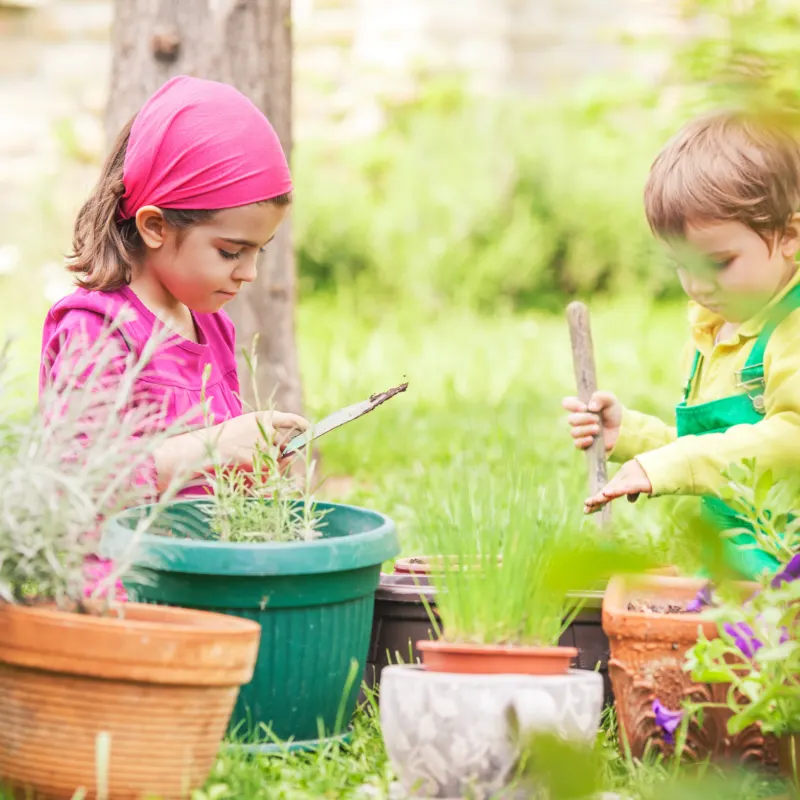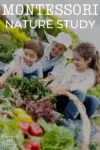Are you ready to embark on an exciting adventure in education that celebrates the beauty of nature and stimulates young minds? Look no further than Montessori Nature Study! This innovative approach to learning encourages children to explore the great outdoors, fostering their curiosity, creativity, and love for the natural world.
In this post, we’ll delve into the captivating realm of Montessori Nature Study, explore its benefits, provide you with practical tips, and address frequently asked questions, helping you unlock the potential of your child’s education.

The Benefits of Montessori Nature Study
Enhancing Sensory Development and Observation Skills
Engaging with nature offers a sensory feast for young learners, igniting their senses in ways that textbooks and indoor environments cannot match. Through Montessori Nature Study, children have the opportunity to:
- Delight in the vibrant colors of flowers, leaves, and insects, stimulating their visual perception.
- Revel in the textures of rocks, bark, and foliage, developing their tactile sensitivity.
- Breathe in the fresh scents of plants, awakening their olfactory senses.
- Listen to the melodious chirping of birds or the rustle of leaves, refining their auditory discrimination.
- Taste seasonal fruits and vegetables, savoring the flavors of nature.

Fostering Curiosity and Scientific Inquiry
Montessori Nature Study empowers children to become naturalists, scientists, and explorers. By immersing themselves in outdoor environments, they can:
- Observe and investigate various phenomena, such as plant growth, insect life cycles, or weather patterns.
- Ask questions, form hypotheses, and devise experiments to test their ideas.
- Develop critical thinking skills, problem-solving abilities, and a passion for inquiry-based learning.
- Gain a deeper understanding of ecological systems, fostering environmental consciousness and stewardship.
- Cultivate a sense of wonder and awe, fueling a lifelong love for learning and exploration.
Practical Tips for a Successful Montessori Nature Study Experience
Prepare for Outdoor Adventures
- Dress appropriately for the weather, ensuring comfort and protection.
- Pack a nature exploration kit, including a magnifying glass, binoculars, a sketchbook, and field guides.
- Research local parks, nature reserves, or botanical gardens to discover suitable outdoor environments for exploration.
Encourage Hands-On Learning
- Allow children to collect and examine natural objects like leaves, rocks, or feathers.
- Create nature-inspired art projects, such as leaf rubbings, nature collages, or pressed flowers.
- Engage in sensory activities like mud play, sand exploration, or water experiments.
- Incorporate storytelling and imaginative play to bring nature experiences to life.

Frequently Asked Questions About Montessori Nature Study
Is Montessori Nature Study suitable for all ages?
Yes! Montessori Nature Study can be adapted to different age groups, from toddlers to elementary school children. Activities and experiences can be tailored to meet the developmental needs of each child.
How can I incorporate Montessori Nature Study into a busy schedule?
Nature can be found everywhere, even in urban environments. Allocate dedicated time for outdoor exploration, even if it’s just a short walk in a nearby park. You can also integrate nature-inspired elements into indoor environments, such as having plants or creating nature-themed play areas.
Montessori Nature Study provides a gateway to a world of discovery and exploration for children. By immersing themselves in the natural environment, young learners develop a deep appreciation for the world around them, foster their sensory skills, and cultivate a lifelong love for learning and environmental stewardship.
With practical tips and guidance, you can unlock the transformative power of Montessori Nature Study, ensuring your child’s education is filled with wonder, curiosity, and endless possibilities. So, what are you waiting for? Step outside and embrace the magic of Montessori Nature Study today!

